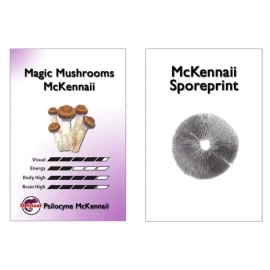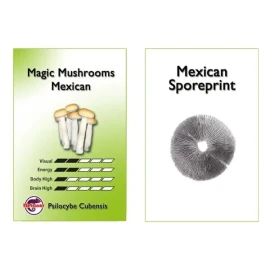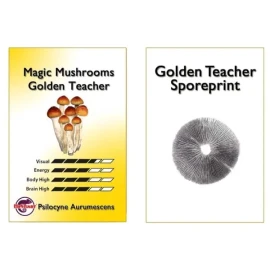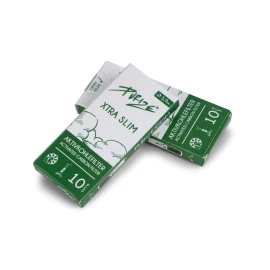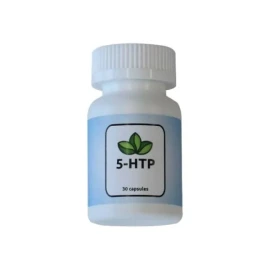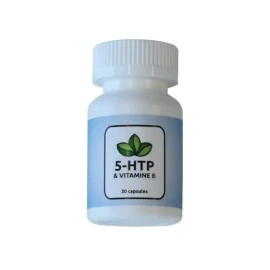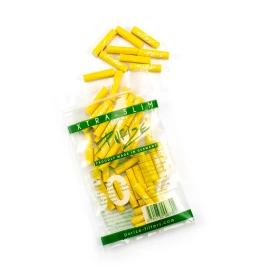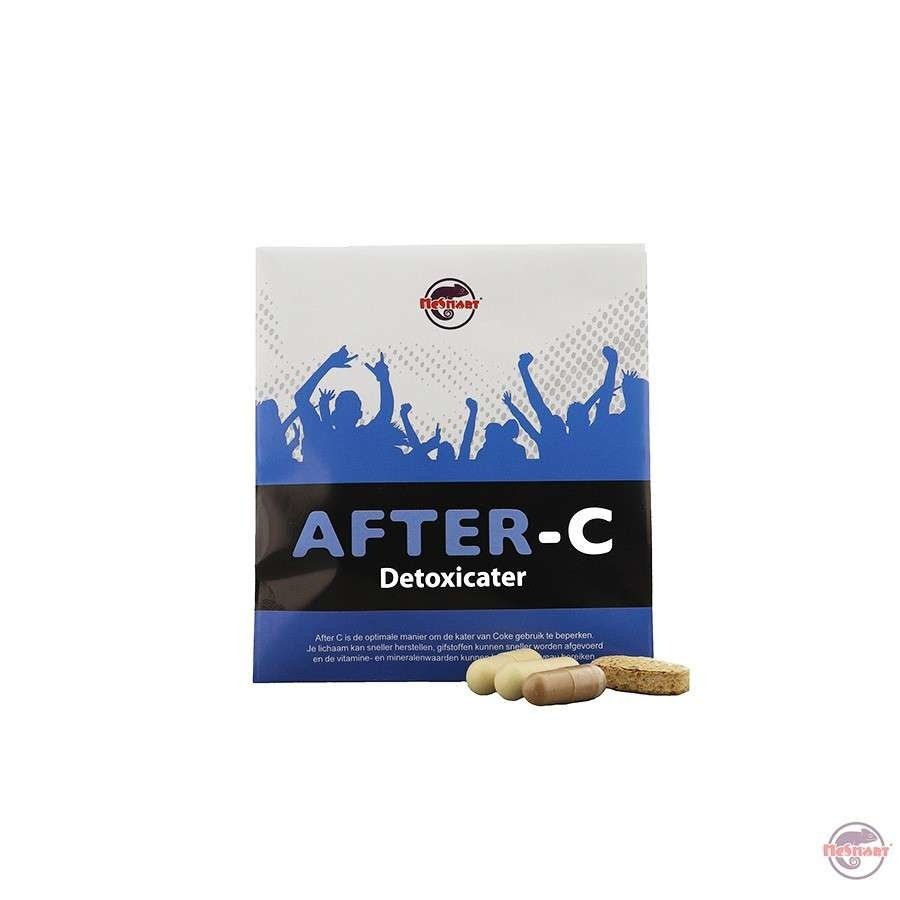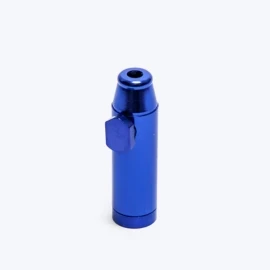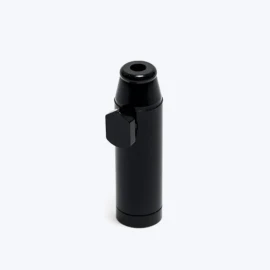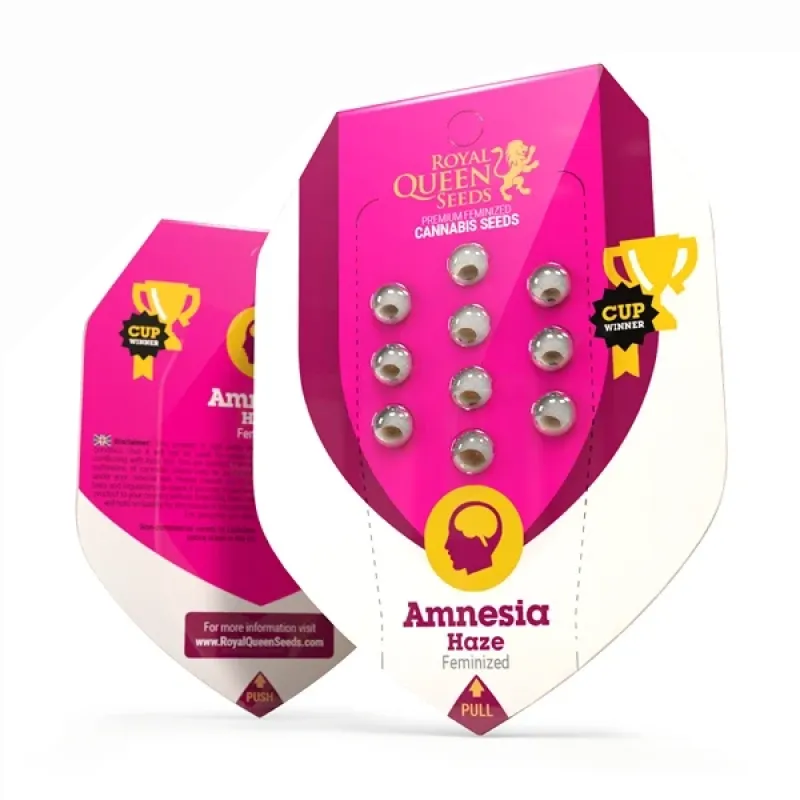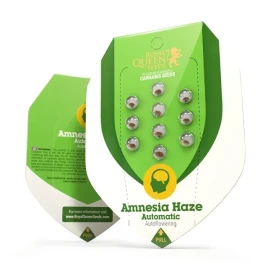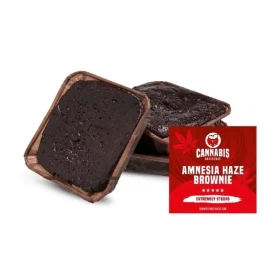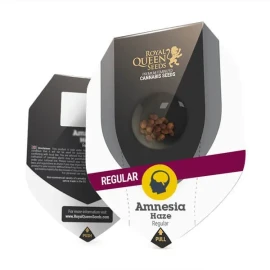Golden Teacher Sporeprint
20,00 €
Hero Product Summary
High-quality Golden Teacher sporeprint — purplish-brown spores from Psilocybe cubensis, optimized for microscopy, taxonomy, and genetic study. Sold for research/educational use only.
Legal Notice: Legal status varies by jurisdiction. We provide sporeprints for microscopy and research — not for cultivation.
Key Product Highlights
• Origin & Strain: Golden Teacher (Psilocybe cubensis) — widely recognized strain ideal for beginner and intermediate mycologists
• Appearance: Dry purplish-brown print with typical spore deposit pattern for clear microscopic examination
• Microscopy Specifications: Typical spore size 11.5–17.3 × 8–11.5 μm with distinctive ellipsoid shape
• Quality Control: Sterile print process, individually packaged with lot/batch number for traceability
• Intended Use: Microscopy, taxonomy, teaching, and genetic reference studies (no cultivation guidance provided)
Product Details & Technical Specifications
Scientific Classification
– Scientific Name: Psilocybe cubensis — “Golden Teacher” strain
– Family: Hymenogastraceae
– Common Names: Golden Teacher, GT
Spore Morphology
– Size Range: 11.5–17.3 × 8–11.5 μm (typical measurement range)
– Shape: Ellipsoid with smooth surface
– Color: Purplish-brown to dark brown spore deposit
– Basidia: Four-spored, typical of Psilocybe cubensis species
Format Options
– Single Print: Sterile foil card format (5-7 cm diameter)
– Packaging: Sterile, tamper-evident envelope with desiccant
– Documentation: Individual lot/batch number with preparation date
– Quality Assurance: Certificate of sterile preparation process included
Storage Specifications
– Long-term Storage: 4–12°C in dry environment
– Short-term Storage: Room temperature in dark, dry location
– Shelf Life: Multiple years when properly stored
– Humidity Control: Keep sealed with included desiccant packet
Usage & Microscopy Guide
Research Applications
This Golden Teacher sporeprint serves multiple educational and research purposes including morphological studies, taxonomic identification, genetic reference documentation, and microscopy training for students and researchers.
Microscopic Examination Protocol
For optimal microscopic examination, prepare slides using standard mounting media such as water or lactophenol cotton blue. Begin observations at 100-400× magnification for initial orientation, then proceed to 1000× oil immersion for detailed spore measurements and morphological analysis.
Measurement Guidelines
When conducting spore measurements, examine at least 20-30 individual spores to obtain representative size ranges and statistical data. Record dimensions, shape characteristics, and any surface ornamentation. Golden Teacher spores typically display consistent ellipsoid morphology with smooth surfaces.
Sample Collection
To obtain representative samples from your print while preserving the remaining material, use sterile technique to collect small portions from different areas of the print. This ensures statistical accuracy while maintaining the integrity of your reference material.
Documentation Standards
Record all observations with appropriate scale bars and measurement data. Digital photography at high magnification provides excellent documentation for comparative studies and educational presentations.
Storage, Quality Assurance & Handling
Optimal Storage Conditions
Store your Golden Teacher sporeprint in cool, dry conditions away from direct light. Refrigeration at 4-12°C provides optimal long-term preservation, while avoiding freeze-thaw cycles that can damage spore viability for microscopic examination.
Quality Control Measures
Each sporeprint undergoes sterile preparation using laminar flow hood technology to minimize contamination. Individual lot numbers ensure complete traceability and quality documentation for research purposes.
Contamination Prevention
Inspect packaging upon arrival for any signs of moisture damage or contamination. Properly prepared sporeprints should show uniform spore deposits without foreign material or discoloration.
Handling Procedures
Always use sterile technique when handling sporeprints. Clean work surfaces and instruments prevent cross-contamination that could compromise your research results.
Legal Status & Responsible Research
Jurisdictional Considerations
Sporeprints are sold exclusively for microscopy, taxonomy, and educational research. Legal status varies significantly by jurisdiction, with some U.S. states including California, Georgia, and Idaho maintaining specific restrictions on possession of Psilocybe spores.
Research Compliance
Purchasers must confirm local legality before ordering and attest that acquisition is solely for legal research and educational purposes. This product is not intended for cultivation in any jurisdiction.
Privacy Protection
All orders receive discreet packaging with minimal external labeling to protect customer privacy while maintaining compliance with shipping regulations.
Academic Use
Educational institutions and researchers benefit from our documentation standards and quality assurance protocols that support legitimate academic study and taxonomic research.
Product Comparison Guide
Sporeprint vs Spore Syringe
Sporeprint Advantages:
– Extended shelf life under proper storage conditions
– Lower contamination risk when professionally prepared
– Superior for morphological studies and archival purposes
– Better suited for detailed microscopic examination
Spore Syringe Characteristics:
– Liquid suspension format
– Shorter storage life requiring refrigeration
– Higher potential for contamination issues
– Different application methodology
Golden Teacher vs Other Strains
Golden Teacher spores offer consistent morphological characteristics that make them ideal for comparative studies. The strain produces reliable spore deposits with uniform coloration and size distribution, distinguishing it from varieties like B+ or Ecuador strains through measurable microscopic differences.
Selection Guidelines
Choose sporeprints for serious microscopic study, taxonomic work, and long-term reference collection building. The dry format provides stability and precision for scientific applications.
Batch Verification & Supply Chain
Traceability Documentation
Every sporeprint includes complete lot documentation with preparation date, source identification, and quality control verification. This traceability supports research reproducibility and quality assurance standards.
Sterile Preparation Process
Professional preparation occurs in controlled laboratory environments using laminar flow hood technology and sterile technique protocols. This process minimizes contamination while preserving spore integrity for microscopic examination.
Source Material
Sporeprints originate from verified Golden Teacher specimens with documented genetic lineage, ensuring consistent morphological characteristics for research applications.
Quality Verification
Available certificates of analysis provide transparency in preparation methods and contamination testing where applicable, supporting professional research standards.
Advanced Microscopy Techniques
Measurement Protocols
Accurate spore measurement requires calibrated eyepiece reticles and consistent illumination. Statistical analysis of multiple measurements provides meaningful morphological data for taxonomic studies.
Imaging Best Practices
Digital microscopy benefits from consistent lighting conditions and proper contrast adjustment. Include scale bars in all documentation and maintain standardized magnification levels for comparative analysis.
Sample Preparation Variables
Different mounting media can affect spore appearance and measurement accuracy. Water mounts provide natural morphology while specialized stains enhance contrast for detailed examination.
Data Collection Standards
Comprehensive spore studies should document size ranges, shape characteristics, color properties, and any surface features. Statistical analysis of large sample sizes improves research validity.
Troubleshooting Common Issues
Poor Microscopic Contrast
Adjust condenser settings and illumination intensity for optimal contrast. Consider alternative mounting media or background illumination techniques to enhance spore visibility.
Measurement Difficulties
Ensure proper calibration of measurement tools and examine multiple spores for representative data. Spore orientation affects apparent size, so measure only properly positioned specimens.
Sample Quality Concerns
Fresh samples from different print areas provide better representation than concentrated samples from single locations. Avoid areas with visible contamination or irregular spore distribution.
Documentation Challenges
Consistent photography requires standardized lighting and magnification settings. Digital calibration ensures accurate scale representation in research documentation.
Frequently Asked Questions
Is it legal to purchase Golden Teacher sporeprints?
Legal status varies by jurisdiction. Purchasers must verify local regulations before ordering. Some states maintain specific restrictions on Psilocybe spore possession regardless of intended use.
What research applications are appropriate?
Sporeprints serve microscopy, taxonomic identification, educational demonstrations, morphological studies, and genetic reference documentation. All applications must comply with local regulations.
How should I store my sporeprint?
Store in cool, dry conditions away from light. Refrigeration at 4-12°C provides optimal preservation. Avoid temperature fluctuations and moisture exposure that can degrade quality.
What if contamination is suspected?
Contact customer support immediately with photographs and lot number information. Replacement procedures depend on contamination type and extent of quality compromise.
Are sterility guarantees provided?
Sporeprints undergo sterile preparation, but biological materials may carry non-target microorganisms. Certificates of analysis document preparation methods and testing results where available.
What microscopic equipment is recommended?
Standard biological microscopes with 100-1000× magnification capability work well. Oil immersion objectives provide optimal resolution for detailed spore examination and measurement.
Can sporeprints be shipped internationally?
Shipping policies vary by destination country. International purchasers must verify import legality and assume responsibility for customs compliance.
How long do sporeprints remain viable for microscopy?
Properly stored sporeprints maintain microscopic quality for extended periods. Cool, dry storage conditions preserve spore morphology for multiple years of research use.
Research Resources & References
Educational Materials
Comprehensive microscopy guides provide detailed protocols for spore examination, measurement techniques, and documentation standards. These resources support both beginning and advanced researchers in proper methodology.
Taxonomic References
Professional taxonomic keys and morphological databases assist in species identification and comparative studies. Academic publications provide peer-reviewed data on Psilocybe spore characteristics.
Community Resources
Moderated research forums offer opportunities for data sharing and methodology discussion among legitimate researchers. All community content undergoes review to ensure compliance with research-only guidelines.
Institutional Support
Educational institutions benefit from bulk ordering options and specialized documentation to support classroom instruction and student research projects within appropriate legal frameworks.
This Golden Teacher sporeprint represents professional-grade research material prepared under strict quality control standards. The combination of documented preparation methods, comprehensive microscopic data, and educational resources makes this an ideal choice for serious taxonomic study and educational applications. Remember to verify local legal compliance before ordering and maintain adherence to research-only applications throughout your studies.
Related Products
Frequently Asked Questions
Everything You Need to Know

